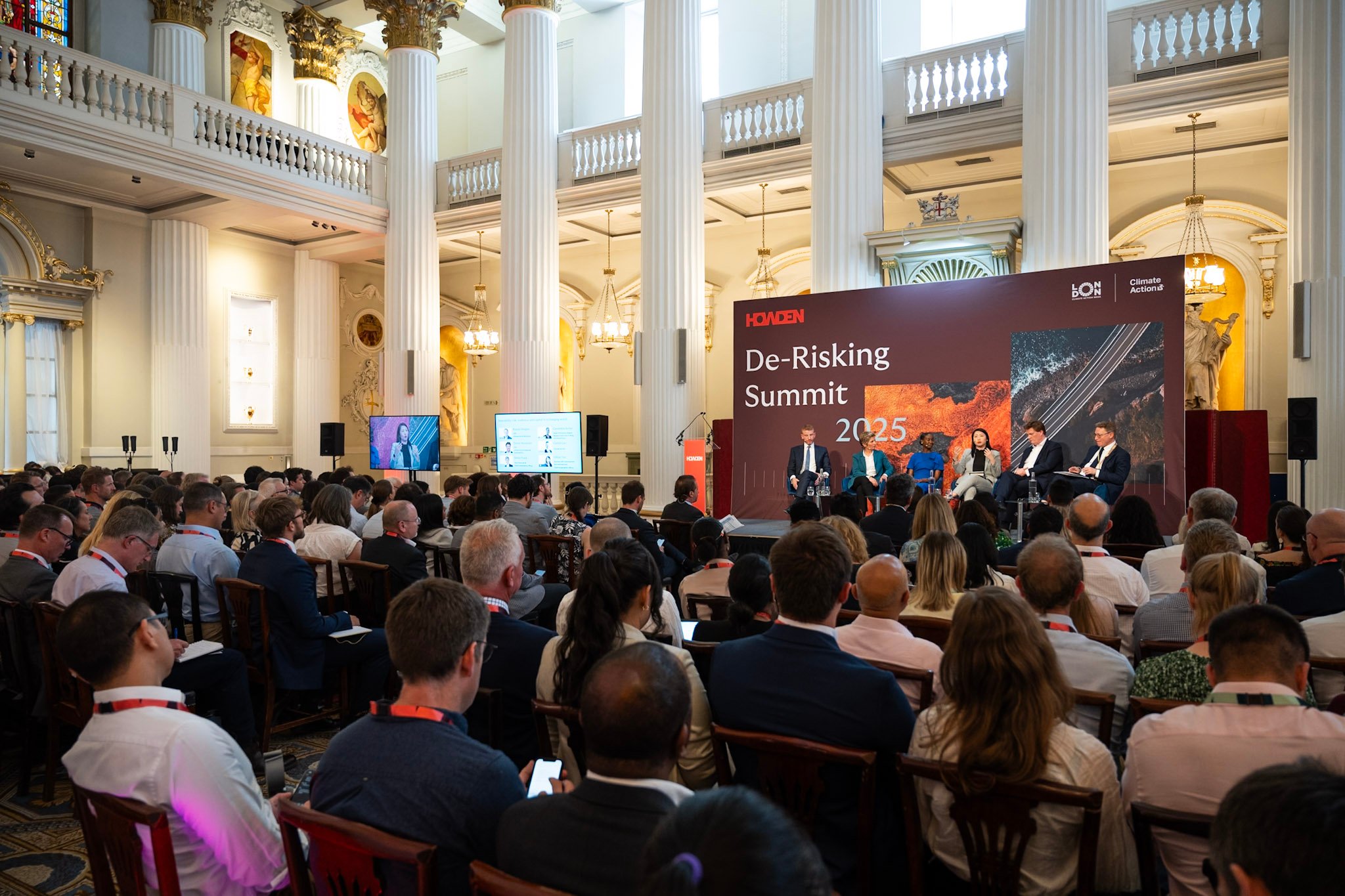2025 De-Risking Summit highlights: insurability in focus
- Recordings of the event are now available: watch the sessions.
Last week, we introduced The Insurability Imperative, highlighting how access to affordable, adequate insurance is fast becoming a key factor in investment readiness, operational resilience and policy integrity.
The report set the tone for Howden's 2025 De-Risking Summit, which kicked off a week of insurance-themed programming at this year’s London Climate Action Week. The event gathered industry leaders, clients, government officials, policy experts and more to explore how to address the climate-driven insurability challenge.
Insurability was the overarching theme of the report and of the day. David Howden, CEO of Howden, defined it as “our capacity to secure insurance and the signal we send to the markets about the nature of risk itself.
“That signal allows clients and consumers to survey the future risk landscape, determine whether trouble is on the horizon and look before they leap.”
We are currently in an insurability crisis, having taken insurance for granted for too long – hence Monday’s summit, which also provided an opportunity to platform clients from various sectors who have a lot to say about the role of insurance in supporting their often complex and innovative climate-related initiatives.
Read on for a round-up of some recurring topics of the day.
Read the report: "The insurability imperative"
Supporting clients' complex needs
We heard from leaders a range of industries such as hospitality, tech, mining and agriculture – all with, of course, their own complex needs.
Gloria Fluxá of Iberostar Group spoke as a client looking for more support in investing in their sustainability practices. Representing a tourism multinational with a majority of its portfolio in areas exposed to extreme climate events, she said that 80% of her sector’s services are dependent on climate.
Her company invests in initiatives such as protecting ecosystems like mangroves and corals, bringing in landscaping to enable dune structure preservation and increasing green areas in their portfolios by 25% by 2030.
Rowan Douglas, CEO of Climate Risk and Resilience at Howden, said, “Our challenge as an industry is to properly respond to Iberostar’s important sustainability investments.”
Fluxá said that when it comes to getting the insurance she needs for her plans, there’s still room for improvement. She believes insurers should focus on “the right use of data, and being brave”.
She also called for industries to recognise those who bring positive change, adding, “The cost of action will be much less than inaction.”
Partnering to accelerate innovation
Gillian Tan from the Monetary Authority of Singapore would like to see the private sector and governments step up in the innovation space, such as through parametric insurance and green energy innovation. “Protection of revenue is critical to unlocking these projects,” she said.
As Assistant Managing Director (Development & International) and Chief Strategy Officer, Tan said she regularly asks her team, “What about the insurers?”
For insurance companies, tackling risks related to new technologies is always a challenge. We need to ensure that innovation impacted by pressing issues such as the climate crisis doesn’t take decades to implement.
Cassio Ferreira from Bayer Crop Science knows this all too well through his work in agriculture in Brazil. He said it takes on average 10 to 12 years to get through a cycle of agricultural innovation – from conception in a lab to testing and approval – then another five years for retailers to recommend products to farmers.
This means it can take at least 15 years for farmers to trust and adopt new innovations, which, given how vital agriculture is to all of us, begs the question: how can we accelerate this?
Insurance becoming increasingly complex is something that needs to be tackled by industries joining forces – it is not just for the insurance sector itself to solve. Rachel Kyte, UK Special Representative for Climate, said, "We need stronger, more dynamic, more permanent partnerships."
As David Howden said in his keynote, “We’ve had insurability crises in the past, but we just didn’t call them that. So how did we handle them? Well, different parts of the economy came together. [...] Today we must do something similar – clients, brokers and insurers uniting to find new solutions.”
